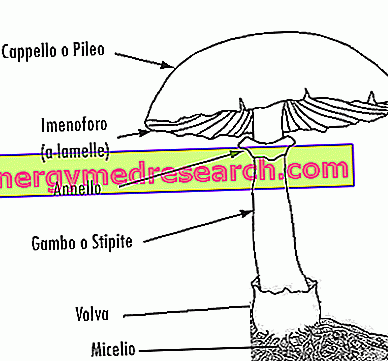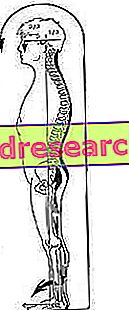CELESTONE ® a drug based on Betamethasone phosphate disodium.
THERAPEUTIC GROUP: Non-associated corticosteroids
IndicationsAction mechanismStudies and clinical effectiveness Usage and dosage instructionsWarnings Pregnancy and lactationInteractionsContraindicationsUndesirable effects

Indications CELESTONE ® Betamethasone
CELESTONE ® is used in the suppression of inflammatory and allergic disorders, for which corticosteroid therapy is indicated.
Mechanism of action CELESTONE ® Betamethasone
CELESTONE ® is a drug based on betamethasone, a synthetic corticosteroid hormone used in the control of inflammatory and allergic diseases.
The anti-inflammatory action is supported by the biological activity of this hormone, which is taken orally and rapidly absorbed at the gastro-intestinal level and distributed to the target tissues (especially the endothelium) bound to plasma proteins.
Given its lipidic nature, betamethasone easily penetrates plasma membranes, binding specific nuclear receptors capable of modulating gene expression and inducing the synthesis of a protein known as lipocortin.
This protein can inhibit the activity of the enzyme phospholipase, reducing the synthesis of arachidonic acid and related pro-inflammatory metabolites such as leukotrienes, prostacyclines and prostaglandins, thus hindering the recruitment of inflammatory cells responsible for tissue damage.
The activity of this hormone, which lasts for several hours, therefore allows the inflammatory cascade of arachidonic acid to be extinguished upstream, carrying out an anti-inflammatory action decidedly more powerful than that mediated by non-steroidal anti-inflammatory drugs.
However, such a high therapeutic efficacy is combined with important side effects, due to the mineralocorticoid (fortunately modest) and glucorticoid activity of betamethasone.
Studies carried out and clinical efficacy
1. BETAMETASONE IN THE TREATMENT OF ALOPECIA
Diffuse alopecia areata is a very difficult condition to treat that leads to gradual and inexorable hair loss. Among the possible etiopathogenic mechanisms there is that related to an autoimmune response that seems to be controlled by pulsed administration, ie with more or less weekly rates, of corticosteroids, including betamethasone.
2. METHOTREXATE BETAMETHASONE IN PSORIASIS
The addition of betamethasone (only 3 mg a week) to methotrexate ensured a rapid improvement in skin lesions with a remission period decidedly longer than that obtainable with methotrexate-based therapy alone.
3. BETAMETASONE AND PARALYSIS IN PREGNANCY
As is known, the effects of betamethasone in pregnancy are still poorly characterized. This study shows how the administration of betamethasone in pregnancy can induce hypokalemia, leading to muscle fatigue and in some cases even paralysis. The symptoms can also be achieved within a few hours of starting treatment, especially if this consists of intramuscular injections.
Method of use and dosage
CELESTONE ® 1 mg coated tablets of betamethasone phosphate disodium:
The dosage of betamethasone varies greatly from individual to individual.
Consequently the correct therapeutic procedure should include a careful evaluation of the physio-pathological conditions, the clinical picture and the therapeutic goals of the patient, before formulating an adequate dosage.
It is therefore important for the competent doctor to supervise the treatment for its entire duration, given the possibility of reformulating the dosage following the possible improvement of the symptomatology or of suspending the treatment in the case of spontaneous remission (very important for chronic diseases ).
Warnings CELESTONE ® Betamethasone
Treatment with CELESTONE ® requires careful medical supervision, useful for minimizing potential side effects.
It is in fact important that the doctor monitors the patient's state of health, both before and during the therapeutic protocol, to establish the correct dosage and any useful changes to improve the therapeutic effect.
Patients undergoing long-term corticosteroid therapy should check the health of the osteo-articular, muscular, visual and cardiovascular system periodically and under medical indication.
The effects of betamethasone on glucose, protein and lipid metabolism could contribute to worsening the condition of hyperglycemia in diabetic patients, delaying growth and compromising proper muscle development, increasing the production of adipose tissue, thus requiring a possible correction of drug treatment, lifestyle and diet.
The anti-inflammatory action could also render immunization protocols of various nature ineffective.
Neurological and psychiatric disorders related to betamethasone therapy could alter the patient's perceptive abilities, making it dangerous to use machinery and drive vehicles.
PREGNANCY AND BREASTFEEDING
The absence of adequate clinical trials useful for evaluating the safety profile of betamethasone in pregnancy for the health of the mother and the unborn child, do not allow to exclude any serious side effects.
The ability of this hormone to cross the placental barrier and be secreted in breast milk significantly increases the risk of hypoxurenalism at birth and in the first months of life.
Consequently the intake of CELESTONE ® in pregnancy and during the period of lactation, should be carried out only in case of real necessity and after having carefully evaluated the relationship between risks and benefits induced by the treatment with your doctor.
Interactions
The numerous metabolic and biological pathways in which betamethasone is involved significantly increase the risk of drug interactions.
In fact, while this hormone is responsible for increasing the activity of active ingredients such as amphotericin B, thiazide diuretics and furosemide and reducing the therapeutic efficacy of oral anticoagulants, anticholinesterases and NSAIDs; estrogens, barbiturates, phenytoin, ephedrine and rifampicin can significantly reduce the anti-inflammatory action of betamethasone.
An adjustment of the dose of drug used may therefore be required in the above cases.
Contraindications CELESTONE ® Betamethasone
CELESTONE ® is contraindicated during systemic infections without adequate therapy or during various immunization procedures.
Betamethasone is also contraindicated in case of hypersensitivity to the active ingredient, of cutaneous and mucosal abrasions of various nature.
Undesirable effects - Side effects
The size and clinical relevance of the side effects of betamethasone are due to the dosage and duration of therapy.
It is in fact known that high dosages and prolonged therapies can be associated with the appearance of even serious side effects, which fortunately seem to regress gradually once treatment is suspended.
The mineralocorticoid action, described in minimal part also for betamethasone, is in fact responsible for hydro-electrolytic alterations potentially dangerous for the cardiovascular and osteo-articular apparatus, subjected respectively to risks of hypertension and heart failure and osteoporosis, hypotrophy and arthropathy.
The other biological effects of betamethasone, including anti-inflammatory and glucocorticoid effects, are instead responsible for neurological and psychiatric symptoms, for endocrine-metabolic disorders and for important ophthalmological and dermatological reactions.
Note
CELESTONE ® is salable only under medical prescription.
The use of CELESTONE ® in sports, without therapeutic needs, constitutes DOPING.



